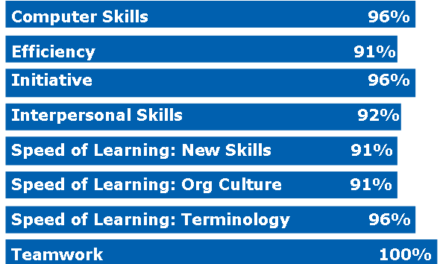Attending to the Basics
Some issues need to be dealt with promptly following your layoff:
- Assessing/negotiating your severance or settlement offer
- Applying for Employment Insurance
- Financial planning
- Accessing other supports and services
Immediately following the layoff, you may feel ill-prepared to make decisions regarding your needs and those of your family. Still, often you should address these issues within a period of a week to a month. Because of the potential that you may experience a shock reaction, it is advisable to avoid making sudden decisions on your own. Instead, ask someone you trust who can be objective and level-headed, to assist you through this stage, to give you feedback and support.
Outlined below are some considerations about each of these issues.
If you were in a permanent position with the organization before your layoff, the chances are that you were presented a severance or settlement package during your exit interview. In some cases, employers urge their laid off staff to sign a document agreeing to the package immediately. It is essential to take some time to consider the offer before deciding to accept it. Do not sign anything yet. Get some input from someone who is knowledgeable in this area to ensure that you are getting the best deal possible.
NOTE: If the company you worked for is closing and declaring bankruptcy, a trustee of bankruptcy will be appointed. Contact the trustee to investigate a settlement.
Some Considerations for Assessing Your Severance Offer
- Does the package presented to you meet the minimum requirements as laid out by the Alberta Employment Standards Code?
Their criteria state that you are entitled to receive from one to eight weeks notice of termination; length of notice is dependent on the length of service with the company. Your employer has the option to pay wages instead of written notice. The employer also has the possibility of providing a combination of written notice and salary.
NOTE: Employment standards vary from province to province. Contact the local Labour Standards office in your region for details. If you require assistance in determining whether your package is a fair deal, contact the Labour Standards office or seek professional advice from a lawyer experienced in the area of layoffs. Some things to consider before seeking out the services of a lawyer to pursue litigation:
- Will the cost of a lawyer outweigh the potential benefit of an increased settlement?
- Is litigation necessary to obtain a more satisfactory solution, or is it possible to settle amicably?
- Will pursuing legal action against my former company have a detrimental effect on my career? (i.e., future employment opportunities in related fields).
- Does the package offer a continuation of your benefits for the duration of the severance period?
If not, attempt to negotiate it (if these are not covered already by a spouse’s plan), which includes any medical, dental, and insurance coverage paid for by the company during your employment. If negotiations are not looking favourable, you may wish to consider offering to pay part or all of the premiums yourself, so that you can still take advantage of the group rate that you wouldn’t qualify for as an individual.
- What are the payout options?
Are you being offered a lump sum, bi-weekly installments, or are you on record as a salaried employee for a pre-determined term?
How will this affect your taxable income? (See Financial Planning).
- Have outplacement services been offered as part of the package?
Many recognize their value and provide these services to their laid-off employees, while these services are not mandatory for the employer to include.
Find out exactly what your company is providing you with and ensure you get the best deal possible. Seek more than resume writing services.
Applying for Employment Insurance.
Efficient outplacement services include supportive, individualized counseling and group workshops in the following areas: coping with the layoff, career exploration, decision making, goal-setting, efficient job search skills, networking, resume writing, interview techniques, and financial planning. In some cases, outplacement agencies provide office space, support staff, telephone answering services and special interest workshops (e.g., Exploring Entrepreneurship). Try to negotiate an increase in your severance monies, so that you may buy these services on your own, If your former employer is not willing to purchase outplacement services for you,
A formula that some organizations have used to calculate some outplacement services required are:
For every $10,000 the employee earned, one month of outplacement counseling is recommended, (e.g., Bob makes $60,000 per annum = six months outplacement services). While six months of outplacement services is a generous package, the minimum you should request is two days of individual and group sessions, with feedback on your resume, job search tips, and coping strategies.
- Have you been provided with letters of recommendation? If not, request that they provide this for you.
Once satisfactorily addressed, get all the terms of the agreement in writing. Ensure you get a signed document with all of the requirements laid out.
File a claim for Employment Insurance immediately. You are expected to that you register quickly upon becoming unemployed, regardless of whether you qualify for payments at the time. Your severance will have an impact on your insurability, but you must be assessed by an insurance agent immediately following your layoff. Even if you do not qualify for payments initially, once you have an active claim you are entitled to access other services.
Tips About Employment Insurance.
- Apply immediately at your nearest Canada-Alberta Service Centre. Contrary to popular belief, it is not necessary to have your Record Of Employment at the time you initiate your claim. If you choose to wait for it, your application will not be active until the week you file.
- Apply anyway, even If you are unsure about whether you qualify for Employment Insurance. The insurance officer will assess your eligibility and advise you accordingly.
- Ask questions (How can I ensure my eligibility? What do I need to do? What services are available to me through the Canada-Alberta Service Centre?).
- Take advantage of the various services offered to you free of charge at the Canada-Alberta Service Centre. Make a point of getting to know what is available to you early in your unemployment so that you can access them as soon as you feel ready for them. Some of the services available through your Canada-Alberta Service Centre office include:
- One-to-one employment counseling.
- Group information sessions.
- Workshops, (may consist of Career Planning, Job Search Tools, and Techniques, etc.).
- Information regarding Job Finding Clubs in your area, support programs, training/upgrading, etc
NOTE: Services vary between centers.
It is essential that you seek out the advice of experts in the area of financial planning. Most immediately you’ll need to consider how to handle your severance monies best (if applicable), whether to put it directly into Registered Retirement Savings Plans (RRSPs), a savings account or other investment alternatives. There are some tax implications you need to be aware of to make the best choice for you. Make sure to discuss these with your advisor. You may also wish to consider contacting Revenue Canada for the most current information regarding taxation. Other financial planning considerations include your insurance and retirement needs and your long-term financial goals. You may need to shop around for the right person to assist you, but the time it takes will be well worth your efforts. Sometimes organizations bring financial consultants in to talk to people being laid off. And don’t forget to look for current financial information in your library and bookstores.
Tips for Financial Planning.
- Find someone who can explain financial matters to you in simple terms. (Check your telephone listings or ask friends to recommend someone).
- Work with someone you feel you can trust.
- Ensure this person is working for you, making every effort to get the best deal for you, (not attempting to steer you to high commission deals for themselves).
Accessing Other Supports and Services.
- Find out up front what you will be charged, for the services of the financial advisor.
- Meet with your banker to discuss your financial status, which may include discussions regarding possible debt consolidation loans, reduced mortgage payments, and retirement savings plans and investments.
- Prepare an interim budget and stick to it, which will likely require a review of your spending habits and a commitment to ‘trim the fat’ and put away the credit cards.
Supports for Independence.
If you find yourself in a situation where you do not qualify for a severance package or Employment Insurance, and you have no other resources (investments, savings, family support), you may need to consider making application for Social Assistance (now termed Supports For Independence (S.F.I. in Alberta). S.F.I. is a program that assists Albertans who are in financial need through the Human Resources and Employment Ministry. It is intended to be an interim step for individuals in need, providing them with the money necessary to meet their basic needs for a short period while they seek alternative means of support.
Other Supports.
By talking to your local Career Development Centre, Canada-Alberta Service Centre or Alberta Human Resources and Employment District Office, you may learn of numerous other supports available in your community.
© Wordscapes® (David Turner). All Rights Reserved.




